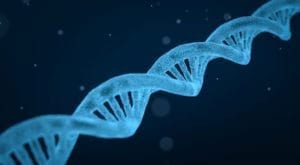Hyperphenylalaninemia
What is hyperphenylalaninemia?
Hyperphenylalaninemia (English pronunciation: hi-per-FEN-il-al-a-nee-mee-ah) is a condition in which the body doesn’t properly metabolize the essential amino acid phenylalanine and it builds up in the blood. Nerve cells in the brain are particularly sensitive to phenylalanine levels and too much of it can cause brain damage. Hyperphenylalaninemia is categorized as a rare inborn error of metabolism and can range from benign to severe. Severe hyperphenylalaninemia can be caused by phenylketonuria, or PKU. Non-PKU hyperphenylalaninemia is characterized by a shortage of a molecule called tetrahydrobiopterin or BH4, which alters the levels of neurotransmitters. People with blood phenylalanine (Phe) concentrations of 120-600 micromol/L are considered to have mild HPA. Most people with hyperphenylalaninemia have a normal life expectancy. Clinical signs include impaired cognitive function, and behavioral and developmental disorders. In the United States, there are approximately 15-75 cases of hyperphenylalaninemia per 1,000,000 births. Hyperphenylalaninemia occurs in all races and affects both sexes equally.What causes hyperphenylalaninemia?
Hyperphenylalaninemia is a genetic disorder in which something goes wrong when the instructions telling the body how to make an enzyme called phenylalanine hydroxylase are transmitted. This happens because of a mutation in the PAH gene. Other genes thought to be involved are:How do people inherit hyperphenylalaninemia?
Hyperphenylalaninemia is inherited as an autosomal-recessive trait, which means each parent carries one copy of the mutated gene.Where can I find more information about hyperphenylalaninemia?
Hyperphenylalaninemia Articles


When it Takes Four Days for a Blood Sample to Get to the Lab
Erica Zahn
October 10, 2016
Read More »



